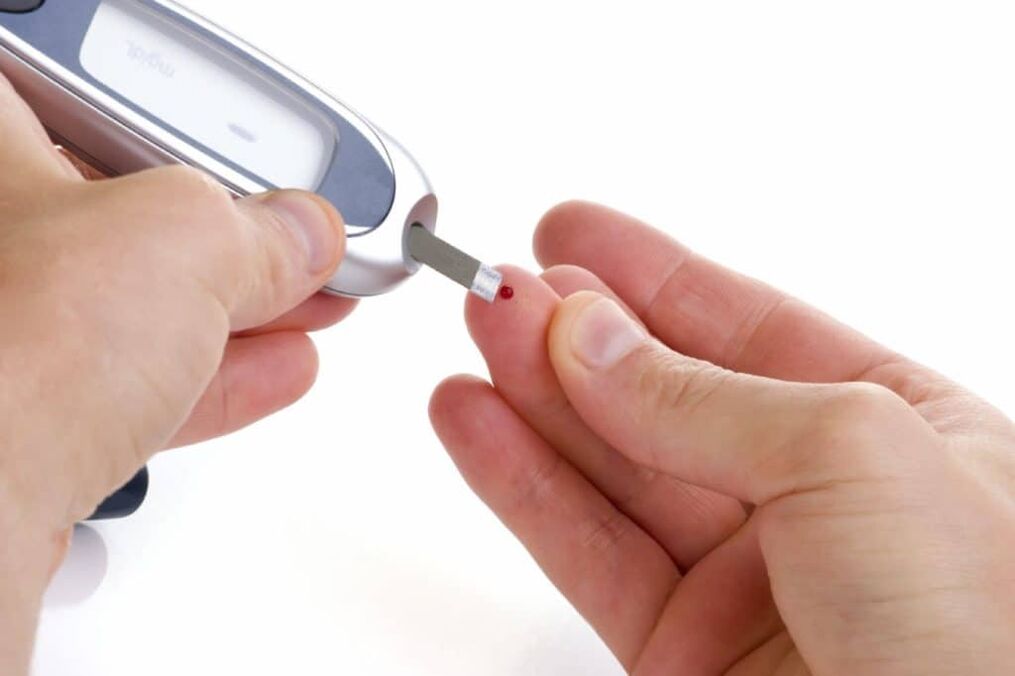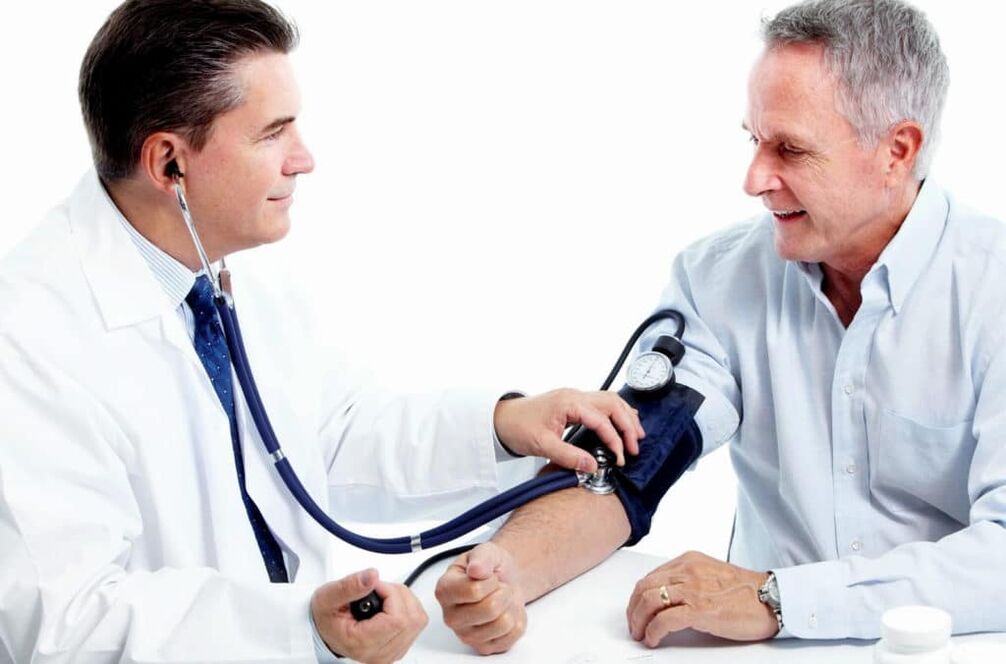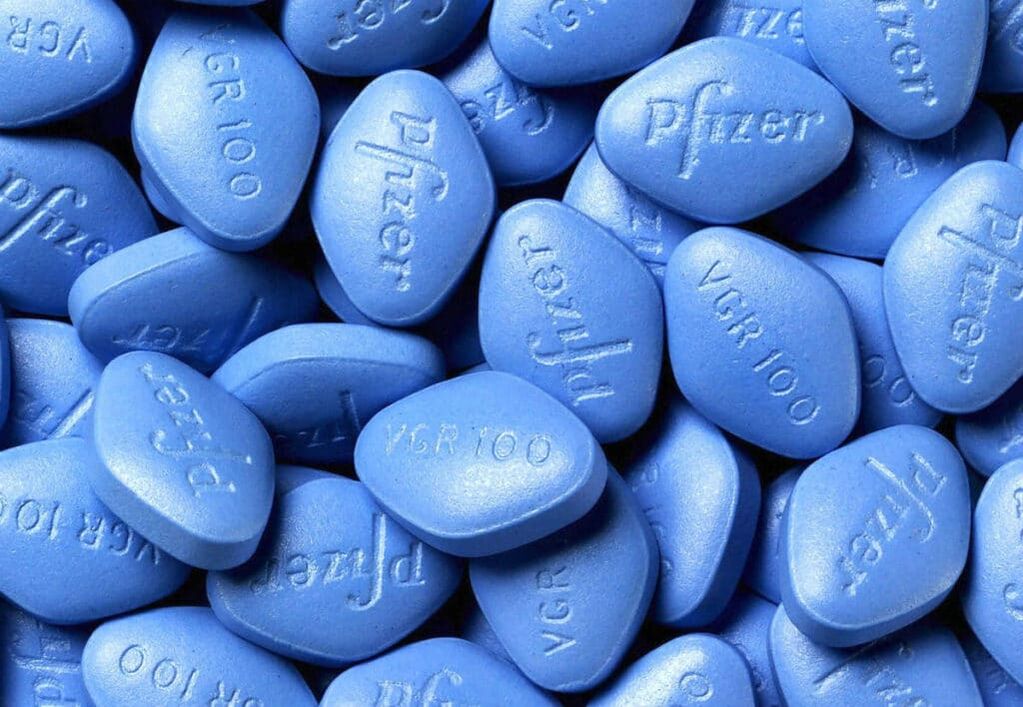A decrease in sexual function in adulthood is an absolutely normal stage of physiological aging of the body. However, we are talking about a decrease, not a total loss of power. Impotence after 50 years is the result of an unhealthy lifestyle, advanced diseases and bad habits. However, even in this case, it is possible and necessary to combat the problem, both with the help of medications and alternative treatments.
Causes of impotence in adulthood.
A decline in sexual function in adulthood is due to a decrease in the synthesis of male sex hormones. For some men this happens after age 50, for others after age 60, but sooner or later everyone experiences a decrease in androgen production.
Changes in hormonal levels in adulthood are a natural process that accompanies the aging process of the body. With a decrease in androgen production, potency weakens and sexual function decreases, but not its complete absence.
Impotence or erectile dysfunction after age 50 is a disease that can and should be treated. According to doctors, 50 years old is too early for a man to rule himself out, since at this age he can have an active sexual life and even become a father, but only if he pays close attention to his own health.
Therefore, changes in hormonal levels negatively affect potency, but in a healthy man such changes lead to a decrease in sexual function, but not to impotence. For the development of complete sexual impotence, natural changes are not enough, therefore the disease develops in the presence of aggravating factors.

The causes of impotence after 50 years are various diseases and poor lifestyle. These include:
- diseases of the genitourinary system;
- physical inactivity;
- hypertonic disease;
- diabetes;
- thyroid gland disorders;
- Cerebrovascular diseases;
- obesity.
It is necessary to consider each of the possible causes in more detail to understand the origins of the development of power problems.
The first place among the causes of early impotence is occupied by prostate diseases. Congestive prostatitis is the most common cause of erectile dysfunction.
The disease develops due to a violation of the outflow of secretions from the prostate. The result is a non-infectious inflammation of the organ. With prostatitis, the tone of the bladder changes, the urethra narrows, urodynamics and the movement of prostatic secretions are disturbed. Engorgement disrupts the normal circulatory process of the pelvic organs, including blood flow to the penis. All these processes lead first to a weakening of the erection and then to complete sexual impotence. The same phenomena are observed in prostate adenoma and some inflammatory diseases of the testicles.
Obesity and physical inactivity are two enemies of a normal erection. These conditions lead to the development of congestion in the pelvic organs and, over time, cause erectile dysfunction.
A special place is occupied by high blood pressure and other diseases of the cardiovascular system. Impaired blood flow mainly affects the blood supply to the lower part of the body. In heart failure, there is a disruption in blood flow to the penis. In high blood pressure, erectile dysfunction is not so much due to a constant increase in blood pressure as it is due to taking medications to control blood pressure. Antihypertensive medications negatively affect male sexual function. It is impotence that is most often included as a side effect of these medications.
In diabetes mellitus, nerve conduction and blood circulation in the lower part of the body are disturbed. This occurs with a decompensated form of the disease and inadequate treatment of diabetes. Constantly high glucose levels alter the structure of blood vessels and may be one of the causes of erectile dysfunction in middle-aged men.
Dysfunction or hyperfunction of the thyroid gland causes changes in hormone levels. Erectile dysfunction is equally common in both hypothyroidism and hyperthyroidism. In addition to impotence, these diseases are accompanied by a number of symptoms of dysfunction of the nervous and cardiovascular systems.
Any cerebrovascular disorder causes an alteration in the conduction of nerve impulses. Multiple sclerosis, spinal cord diseases, severe spinal injuries - all this can lead to a decrease in erection and its complete absence.
The causes of the development of the disorder largely determine the treatment regimen for impotence in men after 50 years.

Signs of sexual impotence
It is necessary to distinguish between early impotence and age-related decline in sexual function. In the first case, the symptoms of impotence appear suddenly after 50 years; in the second case, there is a slow deterioration of potency until complete dysfunction.
Signs of impotence in men aged 50 will help you make a self-diagnosis of sexual impotence. These include:
- weakening of the erection or its complete absence;
- gradual fading of the erection during sexual intercourse with the inability to complete it;
- inability to initiate sexual intercourse due to insufficient penis enlargement;
- Decrease or total absence of sexual desire for the opposite sex.
The presence of at least one of the listed symptoms is a good reason to consult a doctor.
It is important to keep in mind that impotence and its symptoms at age 50 may be a temporary phenomenon. The listed symptoms are a variant of the norm for men who have just suffered a serious illness and have been taking drugs that reduce potency (antihypertensive pills) for a long time. Temporary sexual impotence can also be caused by psychological problems, frequent stress and an unfavorable family environment.
Only a doctor can accurately diagnose impotence and select the optimal treatment regimen after a comprehensive diagnosis.
How to face the problem?
As the years go by, the risk of developing impotence increases, so it is necessary to know how to deal with impotence at age 50 or older. Since in the vast majority of cases a decrease in sexual function is due to the presence of some disease, it is necessary to undergo a complete examination of the body. Measures to restore erection should be used only after treatment of the underlying disease that caused impotence.
Prostatitis occupies a leading position among the causes of impotence. This disease can be asymptomatic for a long time, which is why timely treatment is often not carried out. If the doctor diagnoses inflammation of the prostate, complex long-term treatment will be necessary. Proper treatment of the underlying disease will restore normal potency.
If you have high blood pressure, you should consult a cardiologist about the possibility of replacing your medications with milder medications. It is antihypertensive medications that often cause impotence.
Restoration of the erection is carried out with the help of medications and folk remedies. Furthermore, a man must reconsider his lifestyle.

potency drugs
Drug therapy depends on the cause of the weak potency. For therapeutic use:
- phosphodiesterase inhibitors (fast-acting drugs);
- Selective alpha-2 blockers.
- Dietary supplements and homeopathy;
- hormonal medications.
Phosphodiesterase inhibitors are well-known fast-acting pills. Such drugs have a pronounced effect, contribute to the quick achievement of an erection, but have a number of contraindications. The main condition for taking these pills is the presence of sexual attraction towards the opposite sex. For psychological impotence, when a man is not attracted to his partner, these medications are ineffective.

Another disadvantage is that fast-acting medications do not cure impotence. They eliminate the main symptom, the flaccid erection, for a certain time. When the pill stops working, the erection disappears.
Selective alpha-2 blockers are powerful aphrodisiacs. A drug from this group stimulates blood flow to the penis due to its effect on the central nervous system. The mechanism of action of the drug is similar to that of pills, despite the fact that the drugs belong to different groups.
Hormonal drugs that affect testosterone synthesis are prescribed only by a doctor. It is advisable to use drugs from this group in the presence of endocrine and hormonal disorders, but with normal hormonal production, such drugs can be harmful. The disadvantage of any hormonal drug is a large list of contraindications and side effects.
A safe way to self-treat impotence is to take dietary supplements. These medicines are not medicines, but they act like vitamins. Dietary supplements improve blood supply to the penis, have a positive effect on hormonal levels and gradually improve the erection. The disadvantages of dietary supplements are their long-term use. These medications will be active only if there are no pathological causes of erectile dysfunction. It is advisable to take dietary supplements as an independent remedy in case of stress and overwork, but impotence due to prostatitis or diabetes mellitus cannot be cured with nutritional supplements.
The most popular dietary supplements for potency:
- Peruvian maca;
- Lovelace Strong;
- The Emperor's Secret;
- Golden Horse.
The choice of dietary supplements must be balanced and meaningful. Before you start taking it, you should read the instructions and study the composition. You should only take proven herbal preparations.
Home remedies
Effective folk remedies for potency are various decoctions and infusions with a tonic effect.
Very often you can find recommendations for the use of St. John's wort. In fact, this plant is poisonous and can cause poisoning if used for a long time. St. John's wort has anti-inflammatory properties, but its effect on potency remains questionable. This remedy can be taken for prostatitis and other diseases of the genitourinary system, but in small cycles. Directly for the treatment of impotence, it is better to give preference to other means.
An effective and safe traditional medicine is ginseng root infusion. The plant has a tonic effect and acts as an aphrodisiac, so its positive effect on potency leaves no room for doubt. You can take alcohol tincture (10 drops twice a day) or decoction. To prepare a decoction, pour a large spoonful of roots with a glass of boiling water and cook for half an hour. After cooling, the product is filtered and taken twice a day, two large spoons. The course of treatment lasts three weeks.
Juice from celery stalks or a decoction of the root will help increase potency. To prepare the decoction, grind 30 g of root and boil in a glass of water for 10 minutes.
How to maintain potency until old age.
It is possible to restore potency, but this requires long-term treatment. It is much easier to prevent the development of impotence by following a few simple rules:
- be less nervous;
- get rid of bad habits;
- exercise regularly;
- walk outdoors more often;
- having sex regularly;
- Healthy food;
- treat all diseases in a timely manner.
You should introduce more antioxidant foods into your diet. Every day, a man should eat at least one citrus fruit: an orange or a grapefruit. They contain antioxidants and tone. Several times a week you need to eat celery and garlic, add honey and nuts to your diet. Tomatoes and pumpkin seeds are good for men's health. Testosterone production increases with the consumption of red meat, but in old age it should not be abused. The permissible norm is about 200 g of meat per day.
Prevention should start from an early age. By changing his lifestyle at age 30, a man can maintain good health well into old age.





















